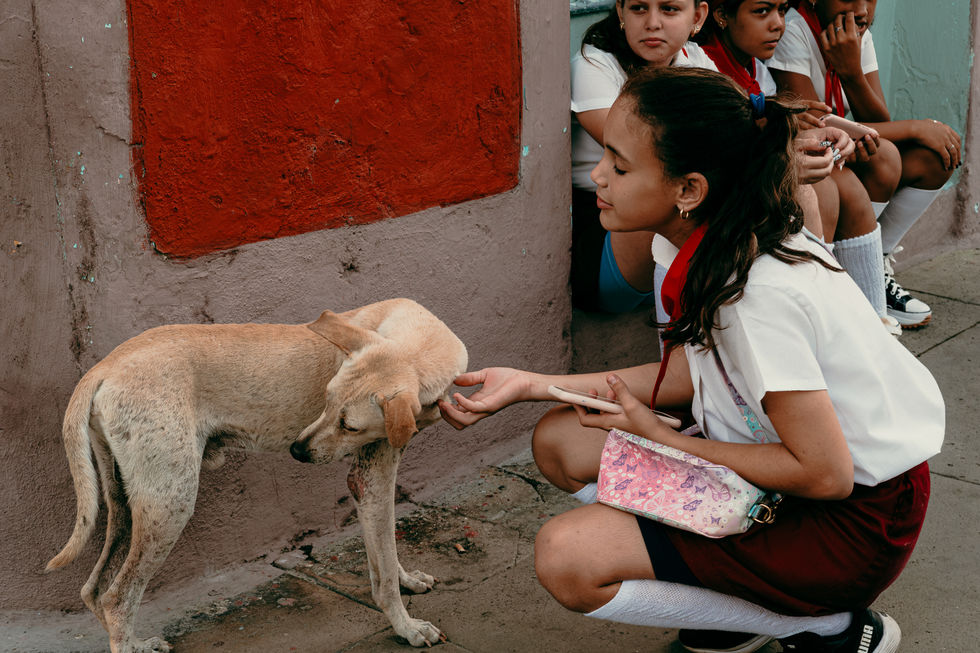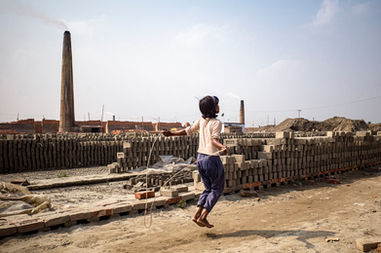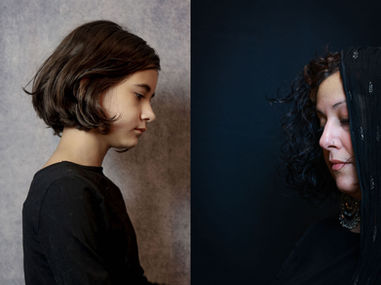
PICTORIAL STORY
April 5, 2024
A WORLD WITHIN REACH
Photography and story by Pedro Vidal
Introduction by Melanie Meggs
Pedro Vidal was born in Brazil and is now based in Barcelona, Spain. He is known for his portraiture and documentary photography. Growing up, Pedro was always connected to art. But it wasn't until his journey into photography later in his life, that he truly found a way to express his creativity and connect with the world around him. For him, photography is a way to capture the splendor of life, a gateway to places and experiences that would have otherwise been out of reach.
With a degree in International Relations, Pedro had a valuable foundation. However, his true passion for photography drove him to pursue a postgraduate degree in the field. His work has been published and exhibited in publications such as El Periódico and National Geographic Brazil, as well as at the Photogenic Festival.
Pedro's latest project focuses on a society that has found what is most human about us: our sense of community. As Pedro sees it, despite facing material limitations and challenges, the Cuban people have managed to create a welcoming and supportive society, showing us a better way to live and coexist. Pedro's photographs capture the warmth and affection that are the foundation of this society.
The project had a strong impact on Pedro, not just in terms of how things looked, but also how they felt. He firmly believes that the true essence of photography lies in its ability to capture memories. Through this project, he feels he has just scratched the surface of what photography is capable of.
This is Pedro's tribute to Cuba and its people, a testament to their strength, resilience, and humanity. Through his lens, he captures a society that continues to inspire and amaze. “A World Within Reach” is both a visual and emotional journey, showcasing the true beauty and strength of Cuba.
-min.jpg)
“Seeking solidarity not as an end but as a means to ensure that our America fulfills its universal mission.” - José Martí.
We live in the biggest crisis of inequality in our existence. In an extremely individualistic society, where our social functions are tied to consumption and our values to the accumulation of wealth. Many of us feel lonely most of the time. There is a widespread pandemic of mental illnesses. Bombarded by entertainment and services, we are always connected, perpetuating the maintenance of this giant wheel that promises everything and delivers nothing. We settle for inhumanity and existential emptiness.
Suppressed by those who have an interest in showing that there is no alternative, Cuba is prevented from participating in the international system. Living under an economic blockade that leaves them with very little to survive on, they thrive beyond survival, showing us that, despite everything, a better world is possible.
We all know about the exemplary levels of education, health, security, housing, etc., that Cuba provides for its people. But it's not this general sense of humanity that I come to explore with these photographs; it's its everyday aspect.
A few years ago, a French photographer, already at an old age, died, and his death made a huge impact on me. He was walking down a busy street in Paris when he stumbled, fell, and remained there, on the ground, for 10 hours until his death. He died from the intense cold, lying on the ground in a public space for 10 hours, helpless, without anyone offering a hand. Murdered by indifference, as a journalist friend sadly noted.
Cuba demonstrates that the construction of an affectionate society occurs regardless of its material or productive development. The reproduction of our affections is intricately linked to helplessness. A helpless society breeds hostility and distrust among its individuals, manifested in our attitudes, choices, and political positions.
The Cuban people made a choice and developed a society where it is possible to thrive through a different path: through our affections. Affection is not just warmth, compassion, or simple love. It is a social element, concerning our subjectivity, our perception to the environment, and our social interaction. Affection, from Freud to Lacan, is not just an individual feeling but something shaped by the social and political relations of our time, determining how we see ourselves within a society.
The disposition of affections as a common good reproduces a welcoming society, where a support network is a natural condition of human relations. Unfortunately, this is a rare condition in the world we live in.
A daily life that would be unsustainable in any neoliberal society thrives in Cuba through this sense of humanity that stands out in everything. Children and the elderly are supported under the watchful and caring eyes of the entire community. Spaces, museums, theaters, squares, or streets generate coexistence; the sensation is of collective belonging. Trust surpasses the notion of individual security. The atmosphere is of solidarity and challenges the logic of competition, an environment where shared responsibility and mutual support are fundamental values.
Beyond the stereotype applied to them as societies that are “happy with so little,” Cuba stands strong as a nation. With an extremely high level of culture and intellectuality, a vivid political awareness, which is noticeable “at the pie de calle” (on the street level). Their achievements in the fields of arts, sciences, sports, and other human expressions are enviable and put into perspective what we want as a society.
Despite contradictions, incessant attacks, and enormous material challenges, Cuba firmly sustains itself in what it tirelessly sought to preserve and build: a profound sense of humanity.
Cuba's transformation transcends material barriers by redefining fundamental structures and nurturing a sense of unity, a proposal to build a fairer and more welcoming society.
Despite everything and everyone, against everything and everyone, Cuba is like a beacon of hope, an inspiration amid contemporary challenges. The possibility of a better world is already manifesting in reality. A better world is possible.

Pedro Vidal's journey into photography has allowed him to not only express his creativity, but also connect with communities and capture the essence of life.
We are grateful to Pedro for sharing this tribute to Cuba and its people, reminding us of the beauty and strength found within humanity. In a world consumed by individualism and materialism, Cuba serves as a beacon of hope and an inspiration for a better world, reminding us that true progress and success lie in our ability to care for and support one another.

The views, thoughts, and opinions expressed in the text belong solely to the author/s, and are not necessarily shared by The Pictorial List and the team.














































